第3章
He felt quite determined, as he walked away, never in his life to go near her.She was perhaps a human being, but Creston oughtn't to have shown her without precautions, oughtn't indeed to have shown her at all.His precautions should have been those of a forger or a murderer, and the people at home would never have mentioned extradition.This was a wife for foreign service or purely external use; a decent consideration would have spared her the injury of comparisons.Such was the first flush of George Stransom's reaction; but as he sat alone that night - there were particular hours he always passed alone - the harshness dropped from it and left only the pity.HE could spend an evening with Kate Creston, if the man to whom she had given everything couldn't.
He had known her twenty years, and she was the only woman for whom he might perhaps have been unfaithful.She was all cleverness and sympathy and charm; her house had been the very easiest in all the world and her friendship the very firmest.Without accidents he had loved her, without accidents every one had loved her: she had made the passions about her as regular as the moon makes the tides.
She had been also of course far too good for her husband, but he never suspected it, and in nothing had she been more admirable than in the exquisite art with which she tried to keep every one else (keeping Creston was no trouble) from finding it out.Here was a man to whom she had devoted her life and for whom she had given it up - dying to bring into the world a child of his bed; and she had had only to submit to her fate to have, ere the grass was green on her grave, no more existence for him than a domestic servant he had replaced.The frivolity, the indecency of it made Stransom's eyes fill; and he had that evening a sturdy sense that he alone, in a world without delicacy, had a right to hold up his head.While he smoked, after dinner, he had a book in his lap, but he had no eyes for his page: his eyes, in the swarming void of things, seemed to have caught Kate Creston's, and it was into their sad silences he looked.It was to him her sentient spirit had turned, knowing it to be of her he would think.He thought for a long time of how the closed eyes of dead women could still live - how they could open again, in a quiet lamplit room, long after they had looked their last.They had looks that survived - had them as great poets had quoted lines.
The newspaper lay by his chair - the thing that came in the afternoon and the servants thought one wanted; without sense for what was in it he had mechanically unfolded and then dropped it.
Before he went to bed he took it up, and this time, at the top of a paragraph, he was caught by five words that made him start.He stood staring, before the fire, at the "Death of Sir Acton Hague, K.C.B.," the man who ten years earlier had been the nearest of his friends and whose deposition from this eminence had practically left it without an occupant.He had seen him after their rupture, but hadn't now seen him for years.Standing there before the fire he turned cold as he read what had befallen him.Promoted a short time previous to the governorship of the Westward Islands, Acton Hague had died, in the bleak honour of this exile, of an illness consequent on the bite of a poisonous snake.His career was compressed by the newspaper into a dozen lines, the perusal of which excited on George Stransom's part no warmer feeling than one of relief at the absence of any mention of their quarrel, an incident accidentally tainted at the time, thanks to their joint immersion in large affairs, with a horrible publicity.Public indeed was the wrong Stransom had, to his own sense, suffered, the insult he had blankly taken from the only man with whom he had ever been intimate; the friend, almost adored, of his University years, the subject, later, of his passionate loyalty: so public that he had never spoken of it to a human creature, so public that he had completely overlooked it.It had made the difference for him that friendship too was all over, but it had only made just that one.
The shock of interests had been private, intensely so; but the action taken by Hague had been in the face of men.To-day it all seemed to have occurred merely to the end that George Stransom should think of him as "Hague" and measure exactly how much he himself could resemble a stone.He went cold, suddenly and horribly cold, to bed.